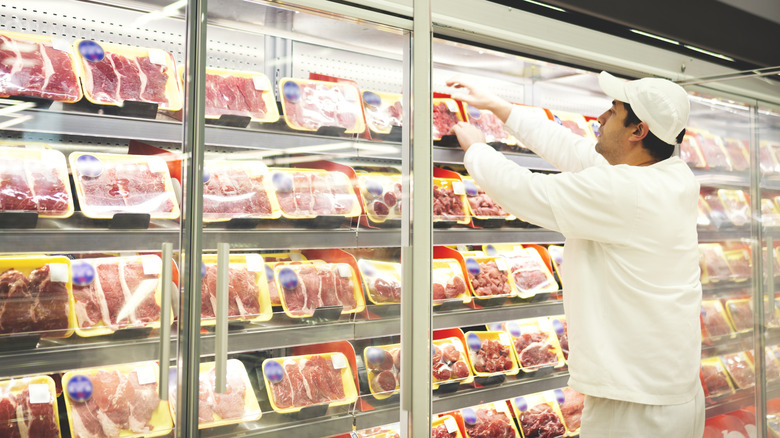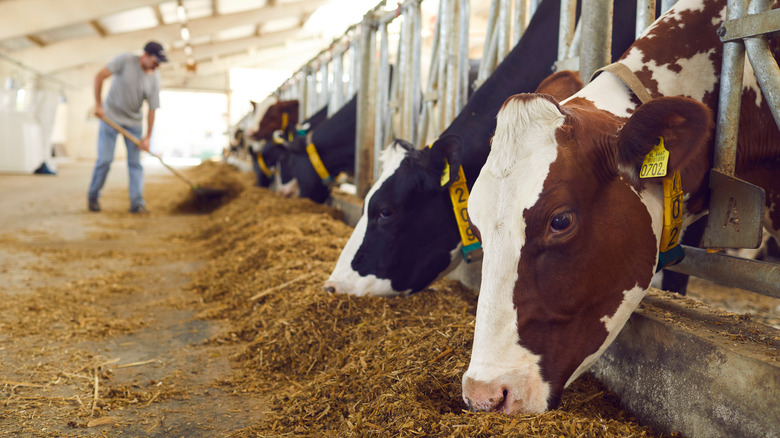USDA To Change How It Checks Welfare Claims On Meat And Poultry Labels
It may soon become easier for shoppers to make more informed and humane meat choices at the grocery store. The United States Department of Agriculture (USDA) has announced plans to revise labeling guidelines for meat producers, per a statement sent to Tasting Table. Through the USDA's Food Safety and Inspection Service (FSIS), this change will encourage additional substantiation and documentation of animal welfare standards to inform how certain words or claims can be used on packaging labels.
Additionally, these guidelines will encourage third-party verification for meat producers to make those claims on its packaging, creating a more uniform standard throughout the industry. For many shoppers, animal welfare claims and the words used on labels such as "free range" or "pasture raised" can greatly influence whether they buy a product. But the USDA has determined that the standards that producers must adhere to for this type of language and the approval process are not currently enough — so hopefully with these new stipulations, there will be less of a chance of misleading consumers.
Reevaluating antibiotics claims
As a step toward tightening the rules, the FSIS plans to sample cattle for antibiotic residue, which will help determine if the requirements for claims that cattle has been "raised without antibiotics" need to be reevaluated or changed. One potential required verification method would be for producers to send in test results from a laboratory confirming that its cattle are free from antibiotics.
The Animal Welfare Institute (AWI)'s farmed animal program director, Dena Jones, reacted to the statement by saying that they are in support of the proposed changes but believe there is still more work to be done, such as making producers "obtain third-party certification" for claims like being "sustainable" or "humane" and ensure consumers that the animals are treated well. According to Agriculture Secretary Tom Vilsack in a press release, these changes should also help "level the playing field for producers who are truthfully using these claims."

